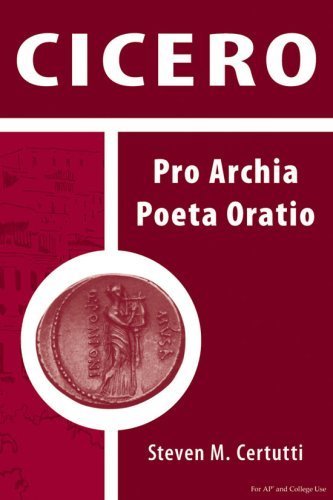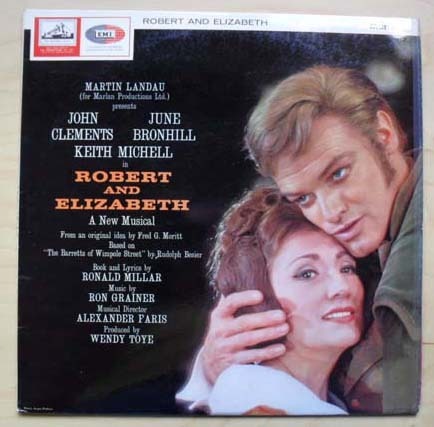Peter Stothard's Blog, page 84
March 29, 2011
Person misses census
 On Sunday night I had two tasks, the first to send off my census form - after struggling through pages for Person 1 and Person 3, how they are related and how many bedrooms they have - and the second to finish a short piece on Cicero's speech, Pro Archia.
On Sunday night I had two tasks, the first to send off my census form - after struggling through pages for Person 1 and Person 3, how they are related and how many bedrooms they have - and the second to finish a short piece on Cicero's speech, Pro Archia.
Poor old Archias, a Syrian immigrant and Cicero's former poetry teacher, was in deep trouble in 62 BC. Was he legal or not? Was he a citizen or not? He had got himself stuck in a row between two big beasts of the Roman jungle, Lucullus and Pompey. He was a flatterer by trade but it wasn't easy even for the smartest foreign poet to please everyone all the time.
Archias lacked the proper paperwork. His citizenship records had been destroyed by war - an early version of the 'cat ate my homework' defense. But worse than that, he had then missed the census. He had been abroad with Lucullus at the time. How was he going to get out of that?
Not even Cicero could pretend that a man had filled in his census form when he had not. So he had to deliver a brilliant passage of distraction (Confirmatio B, as the scholars call it), describing all the virtues of poets and poetry for a civilised state, once a key text for the Renaissance and the only part of the speech that anyone now remembers.
The best possible justification for a Person missing the census.
March 20, 2011
Lines of Work
Of course there can be black faces in bucolic idylls.
A friend from New York calls and says that she has just read an essay about one.
She was not deliberately setting out to follow a distant row about whether a TV creator of rural fantasy should be suspended from work for not including ethnic minorities in his Midsomer Murders. See past post: and much else besides.
My friend had merely stumbled on our little English spat after reading the latest elegant edition of Lapham's Quarterly in which an English writer called Peter Stothard had written an essay about Roman slavery, beginning with a bucolic idyll starring a black woman slave. She just followed the links.
Did I have any comment about that?
OK, OK.
This is the link to the Lapham piece. Its opening concerns the Latin poem called Moretum, a minor bucolic idyll once thought to be by Virgil, in which a woman called Scybale helps a poor Italian farmer make pesto for his breakfast.
It is a delicate little poem, successful in a limited way as I tried to describe. Though nothing like as powerful as the least of Virgil's Eclogues, his genuine subversive versions of the idyll, (nor in any way intending to be) it is a useful example of a genre in which the known and the unknown, the familar and the unfamiliar, recognisable fact and created fantasy are kept in artful balance.
In the Lapham Quarterly essay, I likened Moretum to the country cottage decoration of a china cup. But, if I had been prescient, I could have used Midsome Murders instead, a show which after this week's fuss will doubtless become a little different, a little less exclusively white.
For the sake of all who enjoy it, I hope MM will be more successful than ever, overcoming the perils of introducing artistic change for reasons of greater reality alone, remembering always that 'latet anguis in herba', as one might say.
Meanwhile, try a copy of Lapham's Quarterly - a wonderfully artful concept in itself, like nothing that we have here on this side of the Atlantic, and like most good things a vivid reflection of the character of its creator.
March 15, 2011
Midsomer Murders: a suspension of disbelief
 I don't suppose I have watched many more episodes of Midsomer Murders than the new BBC Chairman, Chris Patten has watched Eastenders. I know that my elderly mother is a big fan. So are millions of others
I don't suppose I have watched many more episodes of Midsomer Murders than the new BBC Chairman, Chris Patten has watched Eastenders. I know that my elderly mother is a big fan. So are millions of others
Such Midsomers as I've seen make a gentle modern example of the 'bucolic idyll', the genre of country life fantasy directed at people who do not live in the country, showing a world that does not exist, often never existed, but which, ever since the time of Theocritus, has been satisfying and pleasurable for many.
This week the creator of the long-running series has been suspended for saying that he did not consider Midsomer parts for blacks and asians. 'It wouldn't work', said David True-May, if the illusion of the English village were broken by their presence. Most newspapers carried the story this morning.
I had never heard before of Mr True-May. If I had done, I would certainly have felt gratitude to him for the pleasure he has brought my mother. He has created a potent and pleasurable illusion that 'works', I will guess, precisely because it is illusory. That is how the bucolic always works.
Ths creation of satisfying illusion is a task, one would have thought, for which the bosses of ITV were greatly less suited than their now abused producer. When Mr True-May said that ethnic minorities in Midsomer would 'deter viewers', he was talking about a popular fiction not a place. His offending remark was precisely in that context, pointing out that the real countryside was 'cosmopolitan' and his own creation was not.
Was he saying that his viewers would be deterred by black faces in the street? No. Only that they might easily be deterred from watching his show if it didn't work so well. 'Not working well' is a common reason why drama fails. The single most important fact about an idyll is that it is not a depiction of real life. Since Midsomer is a village with apparently some two murders a week, this should not be hard to grasp.
March 13, 2011
Before and after the flood
When I woke up in the County Hotel, Chelmsford, on Friday after the Essex Book Festival event for Spartacus Road, the insect-like TV was showing news pictures, taken from the air, of a tidal wave rolling across fields towards a distant road of cars.
The last house I ever owned in Essex was beyond the flood defences; and, whenever I slept there, in the bird sanctuaries of St Osyth, I would often imagine the sea storming over our heads. So did others. It was not a popular house for visitors.
So somehow the first pictures from Japan seemed reasonable - even appropriate - for an Essex boy returning home.
It would be good to see them again. No scene of destruction can match a moving wave and a line of drivers with no sense that something bad is five fields away..
All images of a flood are in their essence 'befores and afters', a genre that we carry around in our heads. What was it like? What is it like now? The 'before and after' used to be a standard trope of journalism - but never can it have been deployed as inexorably as in these ABC pictures I've just picked up - late, I'm sure.
And how pleasant it must be for Colonel Gaddafi. Nothing he does to rebel towns looks much compared to the devastation of Japan. Imagine him sliding back between these befores and these afters and feeling both virtuous and human.
March 1, 2011
Martin Landau's last exit
 At Golders Green crematorium this morning we paid our last respects to Martin Landau, a great West End theatrical impresario of the1950s and 1960s and one of the last links to the influential theatre figures driven to Britain by the Nazi persecution of German Jews.
At Golders Green crematorium this morning we paid our last respects to Martin Landau, a great West End theatrical impresario of the1950s and 1960s and one of the last links to the influential theatre figures driven to Britain by the Nazi persecution of German Jews.
A prolific producer of plays and musicals, whose collaborators included the Beatles' manager, Brian Epstein and Margaret Thatcher's playwright speechwriter, Sir Ronald Millar, he brought the novels of C.P. Snow and the musical, Robert and Elizabeth to the West End stage. But he was a man who never forgot that he had been 'born twice', the first time in Berlin in October 1924 to a family of Jewish jewellers and the second time in England in March,1939, when he arrived alone at Victoria station with a green velvet identifying label and a few pieces of his cello smashed en route by the Gestapo.
Landau's foster parents were Oxford Quakers with whom he learnt the English language and a deep love of England. He later served in the RAF in North Africa and began his stage career in 1945 by building a theatre in Wadi Halfa, Sudan. After training as a director at the RADA, he became a champion of regional repertory theatre in the 1950s and put on dozens of plays in Rochdale, Stockport, Cleethorpes, Bridlington as well as London and Glasgow. He believed that the decline of regional 'rep' was a major loss to the British theatre, one which he blamed on the growth of the Arts Council and the accompanying culture of subsidy.
His West End productions included shows starring Leslie Henson and Dandy Nichols; he helped to launch the career of Patrick MacGoohan whose role in Philip King's Serious Charge, apioneering study of homosexual blackmail, was highly praisedby Orson Welles in 1955.One of his biggest hits was The Masters, a 1964 adaptation of the novel by C.P.Snow about the competition between two dons, a traditionalist and moderniser,to become the Master of a Cambridge College.
The playwright who adapted The Masters was Ronald Millar who became Landau's closest lifetime friend. With the composer, Ron Grainer, they went on to produce the musical Robert and Elizabeth, based on the story ofthepoet lovers,Robert Browning and Elizabeth Barrett. The show, directed by Wendy Toye, starred Keith Michell and another of Landau's close friends, Sir John Clements, and ran for almost a thousand performances from October 1964.
In 1966, as theatre producers began to grapple with the 'youth culture' of the age, Landau and Millar worked with Brian Epstein on the musical On the Level whose subject was a school scandal in which pupils receievd the right answers before they had sat their examinations.The Times linked On the Level with Saturday Night and Sunday Morning and Charlie Girl as developments of which most emphatically it did not approve.
The production and its 'teenage Martians', as The Times described them, opened in Liverpool, the home of the Epstein music empire. Landau was impressed by his partner's skills with the media, less so with his equal preference for grapplingwith a Spanish boy bull-fighter when he was supposed to glad-handing the mayor. The two men had cooperated succesfully on a season of plays in Dublin but fell into dispute over the price that Epstein wanted to charge the On the Level production for the London theatre whose lease Epstein himself held. For Landau this was not a happy experience.
Landau had always had an acute sense of politics and an ability to see through the cant of politicians. When Millar became the most significant of thespeech-writers and presentational advisers for Margaret Thatcher, Landau lent his friend his political as well as theatrical instincts. The two men spoke on the telephone almost every night until Millar's death in 1998 - and as the crematorium audience heard today, many of Millar's greatest speaches for Thatcher came in cooperation with Landau's very remarkable and penetrating mind.
Landau was an inspired and devoted teacher of the dramatic arts, working with pupils almost up to his death, many of whom thanked him today. Some of his life remained mysterious to the end - and there was much exchanging of notes in the tea-room. His extended theatrical family, centred on the actors' agent and producer, Audrey and Joanne Benjamin, who became the third family of his life. He died with Libya in his mind and on his lips, Joanne told us. He had long been a watchful student of resurgent anti-semitism and Islamic extremism in the Middle East, who never forgot the 31 members of his first family who died in Belsen, Dachau and Auschwitz - and the mountains of gold and jewellery which his parents and their fellow Jews of Breslau had first to bring to the black-uniformed men at the town hall.
February 21, 2011
Benghazi's vicious revolutions
 Was the current area of revolt in Eastern Libya around Benghazi famed for vicious liberation struggles even in the Roman era?
Was the current area of revolt in Eastern Libya around Benghazi famed for vicious liberation struggles even in the Roman era?
I've just had a call from an American who says I said it was. She heard me talking about On the Spartacus Road last year and says that this was exactly what I said.
Were there places where, as it were, vast pools of bad blood are never far from the surface of the soil?
I'm hesitant about the more general question. Thinking it might be true brings problems itself.
But Cyrene, as the Benghazi area was known in classical times, was certainly home to one of the wilder recorded revolts against the Romans.
The rebels in 115 AD were Jews, who had won themselves a terrifying reputation for rage and violence, not only tearing down Greek shrines to Apollo, Artemis and Hecate but killing with a viciousness that was extraordinary even to to the most hardened commentators.
They would "eat the flesh of their victims, make belts for themselves from their entrails, anoint themselves with their blood and wear their skins for clothing: many they sawed in two from the head downwards; others they gave to wild beasts; and still others they forced to fight as gladiators."
These opponents of the Roman order were believed to roast their captives alive.
I quoted this in Spartacus Road because Appian, one of the fairer historians of the Spartacus slave war, was caught up in this Cyrene revolt in the Nile delta as a young man. He was the writer on Spartacus who best knew what it was like to be pursued by rebels of highly unreliable behaviour.
Some of those charges were probably anti-Jewish propaganda. We know them from Xiphilinus, who was working from books of Dio's history now lost, and was not known for love of Jewish causes.
But there was certainly something nasty then around Benghazi and there is no reason to think that Appian would have disbelieved the charges.
The Jewish rebels were said to have destroyed bath-houses and colonnades because they were Roman, and killed to the orders, so it was said, of a man they called their Messiah. For Greek and Roman settlers, ensconced in Cyrene since the Spartacus revolt itself ,this was a very nasty surprise.
Appian escaped and lived on to see how legionary power crushed the revolt, the most dangerous Jewish uprising in Roman history, and how the Senate taxed the survivors to restore the ruined temples.
He described how the once-threatening King of the Jews was turned into a theatrical effigy, a Guy Fawkes of the Estern mediterranean and made a regular and exemplary spectacle to discourage imitators.
This is the story to which my American caller was referring. Whether it has any relevance to the present troubles, I very much doubt.
February 11, 2011
Vida and the pie charts
 The Vida survey of reviewers and and books reviewed by men and women is still attracting attention.
The Vida survey of reviewers and and books reviewed by men and women is still attracting attention.
There is a particularly good and fair contribution by Ruth Franklin in the New Republic.
Daniel E. Pritchard, commenting in Frank Wilson's excellent Books, Inq, is right that there are many kinds of book reviews - and many ways to judge them - 'Reader response? Historical analysis? Craft and form? Idiosyncratic style, or journalistic lack of style? Short-form or long form? Academic deep insight or breezy general reader?'
But that in no way invalidates the duty of editors to make judgements. Wilson himself is one of those judges, a fine one, and it is important that his arts of judgement, and the arts of those equally committed and determined, survive in our turbulent times.
At the TLS we take the most seriously the requirement that the TLS selects, without prejudice, fear or favour, the writers who have the best things to say about the books we think are important.
We use the word 'best' within a long and evolving tradition that defines what the TLS is.
To give any requirement a higher priority than excellence - or to commision reviews for any other reasons than that - would risk the intellectual reputation that is more vital to us than any other and alone makes our choice of books and reviewers worth discussion at all.
Quotas are not a new question. Sometimes readers of the TLS tell me we are favouring Oxford over Cambridge, Texas over Scotland, French over Spanish and yes, men over women. Publishers occasionally complain that they are systematically neglected. So do national champions and those who put the highest value on gender equality. We always note what is said.
No one here, however, has specific instructions in that regard. Nor should they. Equality in any category would be hard to achieve, in every category impossible. I like to see reasonable balances - and would be concerned if it could be shown that Russia had double the representation of Germany, that Harvard produced twice the number of reviewers or books reviewed as did Yale.
So, yes, Vida's pie charts are good food for thought - and a range of explanations, some of them well beyond the responsibility of editors, have already been given for them.
The TLS is absolutely open to new critics and writers, young critics and writers, and to those who have new books to promote. That goes some way to explaining why, by Vida's standards, we do better than our closest competitors. I would expect that at the TLS more reviewers review more books by more writers from more places than at any other paper - although I am not about to take time out from editing to produce a pie chart that proves that.
February 5, 2011
Women and men in the TLS
 There are some issues on which, as a normally cautious interviewee, I have always felt strongly - and been happy to talk about to anyone.
There are some issues on which, as a normally cautious interviewee, I have always felt strongly - and been happy to talk about to anyone.
One of those is the need for newspapers to have writers whose interests are close to those of all its readers.
Sometimes, especially at The Times in the 1980s and 1990s, it was necessary to promote some brilliant women writers and editors, against recommendations from male colleagues, in order to make it more likely that this need was fulfilled,
At the TLS, while rejecting 50-50 quotas for books and reviewers, I take very seriously the idea that congruence between our writers, readers and subjects is likely to be better than the opposite - not just in gender but in other respects too.
So when a reporter from The Guardian caught me on Friday morning to discuss a new American survey on women writers, reviewers and literary editors I was happy to talk.
In some ideas of ideal worlds there would be equal numbers of men and women writing, reading and reviewing books.
If that is an ideal, it is still, like most ideals, still unfulfilled.
I expected, as I told the Guardian, that, if any idealist were counting, the TLS would be judged better than others. Without going into details of the London and New York reviews of books, this turned out from the reporter's story to be the case.
I also knew, from past attempts to understand this issue, that a big problem was the base figure against which the choice of books for books for review should be judged. If the TLS is the main British reviewer of books on philosophy, eighteenth century literature, nineteeenth century history, ktl, how hard should we try to redress any already existing gender imbalance in writing on those subjects?
TLS readers would not, I think, wish us to stray very far from our more important commitment to seek out what was best and commission the best pieces that we can.
The Guardian reporter said that women read more books than men - and that this might be an issue too.
I repeated that it would be useful to know the number of books written by men and women that were in the areas likely to be reviewed by the NYRB , LRB and TLS. There were many popular genres, romantic and certain kinds of historical fiction, for example, that had long been dominated by women writers and readers, which were not much reviewed and would distort a proper comparison. I could - and probably should - have said that there were other genres, little reviewed, that are similarly dominated by men.
As a result, there have been complaints today: was I have suggesting that books written and read by women were somewhow inferior?
No, It should not need saying. It feels very strange that I should have to be saying that 'no' at all.
February 3, 2011
Spartacus Road plus?
 I'm told that On the Spartacus Road is out in paperback today - in the handsome brown HarperPress jacket that I saw before leaving for Egypt.
I'm told that On the Spartacus Road is out in paperback today - in the handsome brown HarperPress jacket that I saw before leaving for Egypt.
Moreover, it is in some places not just available on its own but in a three-for-two offer.
Since it seems churlish - almost a challenge to fate not to buy one myself today (to go with the American hardback from Barnes and Noble Fifth Avenue, the British hardback from a shelf in Oxford Street, and the ipad and kindle versions from a cybercloud somewhere) I can now choose two other paperbacks without guilt at adding to my bookpile.
So what will they be? If there were justice across the millennia it would be a selection of Martial epigrams, including the poem that praises, for the first time I think, the portability, convenience and modesty of the then new 'book' over the old-fashioned inconvenient and grandiose papyrus scroll.
Lest anyone thinks that paperback writers on ancient Rome are unclassically keen to promote their wares, Martial even gives the name of his local bookseller and stockist.
Martial's poems make several appearances in On the Spartacus Road. So it would be a double thankyou to buy him if, by any chance, he were on a three-for-two offer when I arrive in Oxford this afternoon.
February 2, 2011
I blame the Egyptians
My inner-blogger, first activated to my great surprise five years ago, is experiencing its first existential crisis. Yes, I know I have posted only twice (and very lightly) since coming back from Alexandria two weeks ago - and only twice while I was there. I have had emails and calls checking if I am still alive.
Can I continue to blame the Egyptians? Yes, I think so. For the fifteen days that I was in the city of the Ptolemies the place was merely tense and touchy after the Christmas church bombing. Since then I have had that nasty feeling for a journalist of not being where I ought to be. I have been watching too much Al Jazeera and, although I was in Alexandria for wholly classical reasons, nothing to do with journalism or politics at all, it still feels odd to be back in the UK when so much is happening in the city whose ancient rulers, almost all of them, saw as natural home of riot and revolt.
Alexandrians, for example, were famed for abusing Roman emperors - and for enduring a good deal of oppressive architecture in return (see pic). Alexandrians gave a very nasty fright to Julius Caesar in the mini-war that followed his first meeting with Cleopatra. 'Barely abject at one extreme, rashly foolhardy at the other' was the verdict on his fellows of the city's pioneer novelist Achilles Tatius. None of that comment is of any relevance for journalism, or even blogging, but it sets up a kind of angst all the same.
On Monday evening I broke away for a while to hand over our annual translation prizes - to all the winner bar the one besieged in Cairo.
Last night I saw the wonderfully distracting new film of Brighton Rock, a vivid account, inter alia, of the bad things that can happen under cover of riot.
Next week, I'm hoping that calm both in Egypt and closer to home will be restored.
Peter Stothard's Blog
- Peter Stothard's profile
- 30 followers




